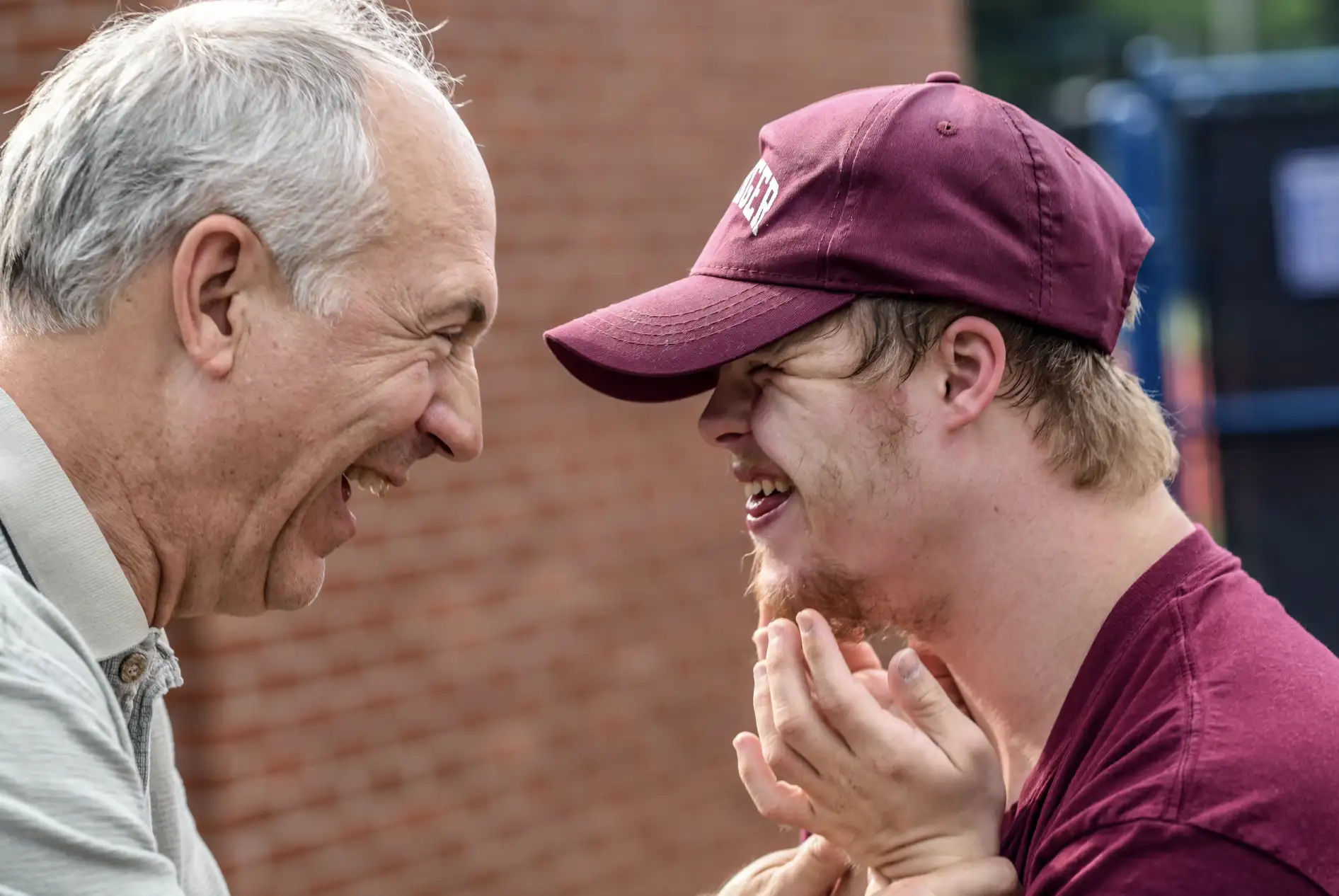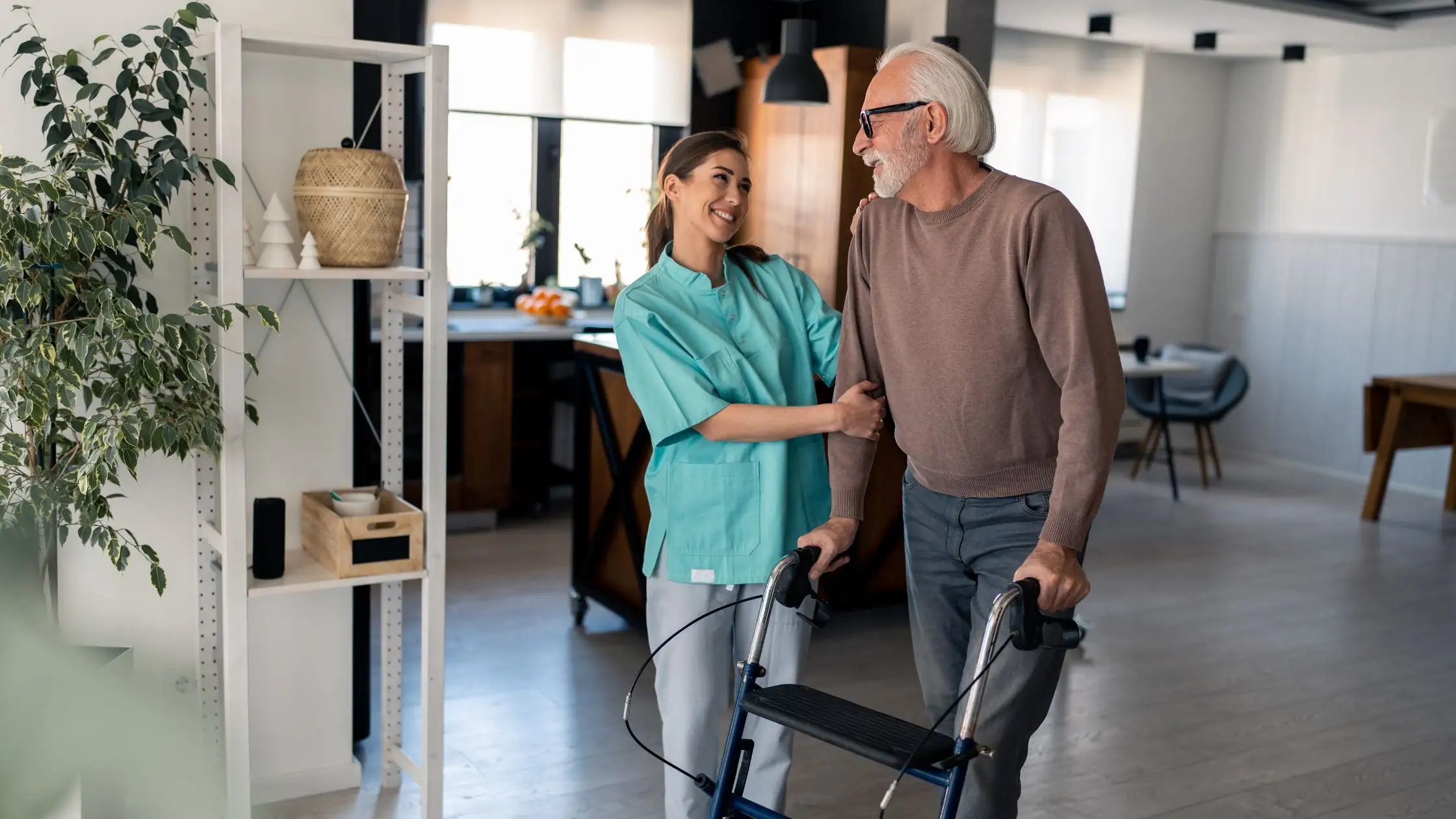NDIS social and community participation funding helps you get out into the world, build relationships, and engage with your community. It’s one of the most valuable parts of many NDIS plans—but it’s also one of the most misunderstood.
This comprehensive guide explains exactly what social and community participation means, how the funding works in 2025, what activities are covered, and how to make the most of your allocation.
What is NDIS Social and Community Participation?
NDIS Social and Community Participation is funding that helps you:
- Build relationships and friendships
- Develop social skills and confidence
- Access community services and activities
- Participate in recreational, cultural, and civic life
- Work towards employment and economic independence
The funding covers support worker time to help you attend activities, navigate community settings, and develop the skills to participate more independently over time.
The Key Distinction: Social vs Community Participation
While often grouped together, there’s a subtle difference:
| Aspect | Social Participation | Community Participation |
|---|---|---|
| Focus | Building relationships, friendships, social skills | Engaging with broader community life and services |
| Goals | ”I want to feel less isolated,” “I want to make friends" | "I want to use the library independently,” “I want to attend local events” |
| Examples | Joining clubs, attending social gatherings, meeting friends | Accessing libraries, attending civic events, using community transport |
In practice, most activities involve both elements—a community sports club develops social connections while engaging with community life.
NDIS Community Participation Line Items (2025)
Understanding the line item codes helps you know what funding category your activities fall under:
Core Supports - Assistance with Social and Community Participation
| Line Item Code | Description | 2024-25 Rate |
|---|---|---|
| 04_104_0125_6_1 | Assistance with Social & Community Participation (Standard) | $67.56/hr |
| 04_105_0125_6_1 | Assistance with Social & Community Participation (High Intensity) | $74.92/hr |
| 04_102_0125_6_1 | Group Activities (2:1 ratio) | $38.09/hr per participant |
| 04_103_0125_6_1 | Group Activities (3:1 ratio) | $27.50/hr per participant |
Capacity Building - Increased Social and Community Participation
| Line Item Code | Description | Purpose |
|---|---|---|
| 09_011_0117_6_3 | Development of Skills for Community Participation | Skill building for independence |
| 09_009_0117_6_3 | Participation in Community, Social & Civic Activities | Structured programs |
Note: Line item codes are updated annually. Check the current NDIS Price Guide for the latest codes and rates.
What Activities Are Covered?
NDIS social and community participation funding can support a wide range of activities:
Sports and Recreation
| Activity Type | Examples | What’s Funded |
|---|---|---|
| Team Sports | Wheelchair basketball, adaptive soccer, blind cricket | Support worker, transport, equipment modifications |
| Individual Sports | Swimming lessons, adaptive yoga, gym sessions | Support worker assistance, transport |
| Outdoor Activities | Bushwalking groups, adaptive surfing, cycling clubs | Support worker, transport, accessible equipment |
| Fitness Programs | Group exercise classes, personal training sessions | Support worker to assist participation |
Arts and Culture
| Activity Type | Examples | What’s Funded |
|---|---|---|
| Creative Arts | Painting classes, pottery workshops, photography clubs | Support worker, transport, accessibility aids |
| Performing Arts | Drama groups, choir, dance classes | Support worker assistance |
| Cultural Events | Museum visits, art gallery tours, concerts | Support worker accompaniment, transport |
| Music | Music lessons, drumming circles, band participation | Support worker time |
Learning and Development
| Activity Type | Examples | What’s Funded |
|---|---|---|
| Educational Classes | TAFE courses, digital literacy, language classes | Support worker assistance |
| Life Skills | Cooking classes, budgeting workshops, driving lessons support | Support worker, transport |
| Personal Development | Public speaking courses, leadership programs | Support worker facilitation |
Social Clubs and Groups
| Activity Type | Examples | What’s Funded |
|---|---|---|
| Hobby Groups | Book clubs, gaming groups, craft circles | Support worker, transport |
| Support Groups | Peer support meetings, advocacy groups | Support worker assistance |
| Interest Groups | Gardening clubs, bird watching, astronomy groups | Support worker, transport |
Community Engagement
| Activity Type | Examples | What’s Funded |
|---|---|---|
| Volunteering | Charity work, animal shelters, community gardens | Support worker to facilitate |
| Civic Participation | Town meetings, community forums, advocacy | Support worker accompaniment |
| Religious/Spiritual | Church, temple, mosque attendance | Support worker if needed |
Camps and Holiday Programs
| Activity Type | Examples | What’s Funded |
|---|---|---|
| Day Camps | Adventure activities, sports camps | Support worker component only |
| Residential Camps | Multi-day camps with skill development | Support worker, some accommodation support |
| Holiday Programs | School holiday activities | Support worker hours |
What Is NOT Covered?
Understanding what the NDIS doesn’t fund is just as important:
Direct Activity Costs (Your Responsibility)
| Cost Type | Examples | Why Not Funded |
|---|---|---|
| Entry Fees | Movie tickets, concert tickets, sporting event entry | Everyday cost everyone pays |
| Membership Fees | Gym membership, club fees, library membership | Standard community cost |
| Food and Drinks | Coffee, lunch, snacks during activities | Everyday living expense |
| Equipment Purchase | Standard sports equipment, musical instruments | Not disability-specific |
| Course Fees | TAFE fees, class registration | Educational cost |
What This Means in Practice
Example: You want to join a weekly art class.
- NDIS funds: Support worker to help you attend (transport + assistance during class)
- You pay: Class registration fee, art supplies
Example: You want to attend a concert with friends.
- NDIS funds: Support worker to accompany you and provide assistance
- You pay: Concert ticket, food/drinks
How Much Funding Can You Get?
NDIS social and community participation funding varies based on your individual needs and goals. Here’s what to expect:
Typical Funding Ranges
| Support Level | Annual Range | Typical Hours/Week |
|---|---|---|
| Low support needs | $5,000 - $10,000 | 2-4 hours |
| Moderate support needs | $10,000 - $20,000 | 4-6 hours |
| High support needs | $20,000 - $35,000+ | 6-10+ hours |
Factors That Affect Your Funding
| Factor | Impact |
|---|---|
| Functional capacity | Greater support needs = more hours |
| Geographic location | Rural/remote areas may get extra transport hours |
| Specific goals | Intensive skill-building programs may justify more funding |
| Group vs individual | Group activities stretch funding further |
Calculating Your Needs
Example calculation:
- Weekly art class: 3 hours (including transport) × $67.56 = $202.68/week
- Monthly outing: 4 hours × $67.56 = $270.24/month
- Annual total: ($202.68 × 48 weeks) + ($270.24 × 12 months) = $12,981.24
Bring specific calculations like this to your planning meeting to justify your funding request.
How to Find Local NDIS Group Activities
Finding the right activities can be challenging. Here are proven strategies:
1. Ask Your Support Team
Your Support Coordinator and LAC know your local area and can recommend:
- Registered providers with community programs
- Local disability organisations with groups
- Community centres with accessible activities
2. Use Online Resources
| Resource | What You’ll Find |
|---|---|
| Clickability | Searchable database of NDIS providers and programs |
| NDIS Provider Finder | Official NDIS tool for finding registered providers |
| Meetup.com | Local interest groups (filter by accessibility) |
| Facebook Groups | Search “[Your Suburb] NDIS” or “disability groups [area]“ |
| Local council websites | Community programs, often with disability-specific options |
3. Check Community Resources
- Local libraries - Often have accessible programs and meeting spaces
- Community centres - Check noticeboards and websites
- Recreation centres - Adaptive fitness and sports programs
- Churches and religious organisations - Social groups and activities
- RSL clubs - Often have accessible social activities
4. Ask Other Participants
Connect with other NDIS participants through:
- Online forums (r/NDIS on Reddit)
- Local disability support groups
- Provider-organised social events
Setting SMART Goals for Community Participation
Your NDIS plan needs clear goals to justify community participation funding. Use the SMART framework:
SMART Goal Examples
Goal 1: Building Social Connections
“I will join a local book club and attend at least 8 meetings over the next 6 months to develop friendships and improve my social confidence.”
Goal 2: Developing Skills
“I will complete a 12-week cooking class at the local community centre, learning to prepare 10 different meals independently.”
Goal 3: Community Engagement
“I will volunteer at the local animal shelter for 2 hours each week for the next 12 months, building work skills and community connections.”
Goal 4: Physical Health and Social
“I will join a weekly adaptive sports program, participating in at least 40 sessions over the year to improve fitness and make friends.”
Goal 5: Cultural Participation
“I will attend at least one community event or festival each month for the next year, expanding my cultural experiences and social network.”
What Makes a Strong Goal
| Element | Weak Example | Strong Example |
|---|---|---|
| Specific | ”Get out more" | "Attend a weekly art class” |
| Measurable | ”Meet people" | "Attend 2 social events per month” |
| Achievable | ”Join 10 clubs" | "Join 1 club, attend consistently” |
| Relevant | ”Learn to ski” (if not relevant to your goals) | Activity linked to your interests |
| Time-bound | ”Eventually" | "For the next 6 months” |
The Role of Your Support Worker
Your support worker is crucial to successful community participation. They can:
Before the Activity
- Help you research and choose activities
- Assist with registrations and bookings
- Plan transport and logistics
- Prepare any needed equipment or communication aids
During the Activity
- Provide physical assistance as needed
- Facilitate social interactions
- Help with communication
- Ensure your safety and comfort
- Support skill development
After the Activity
- Help you reflect on the experience
- Identify what went well and what to improve
- Document progress towards goals
- Plan for future activities
What Support Workers Cannot Do
| Appropriate | Not Appropriate |
|---|---|
| Help you participate in activities | Participate on your behalf |
| Facilitate social connections | Be your only social connection |
| Support skill development | Do tasks you could do independently |
| Ensure safety | Provide medical or clinical care |
Maximising Your Community Participation Funding
Strategy 1: Use Group Activities
Group activities (2:1, 3:1, or 4:1 ratios) cost less per hour:
| Support Type | Rate | Your Cost (4 hrs) |
|---|---|---|
| 1:1 Support | $67.56/hr | $270.24 |
| 2:1 Group | $38.09/hr | $152.36 |
| 3:1 Group | $27.50/hr | $110.00 |
Savings: A 3:1 group activity saves you ~60% compared to 1:1 support.
Strategy 2: Combine Transport and Support
When your support worker provides transport AND activity support, you use one funding stream instead of two. Plan activities where your support worker can drive you and assist during the activity.
Strategy 3: Build Towards Independence
The best use of community participation funding is building skills so you need less support over time:
| Stage | Support Level | Focus |
|---|---|---|
| Initial | High (1:1) | Learning the activity, building confidence |
| Developing | Moderate (2:1 group) | Practising skills, expanding network |
| Established | Low or none | Independent participation |
Strategy 4: Plan Strategically
- Cluster activities on the same day to reduce transport time
- Choose accessible venues to minimise support needs
- Build routines so activities become easier over time
- Start with structured programs before independent activities
Increased Social and Community Participation (Capacity Building)
Some plans include Capacity Building funding specifically for community participation skill development. This is different from Core Support:
Core vs Capacity Building
| Aspect | Core Support | Capacity Building |
|---|---|---|
| Purpose | Ongoing support to participate | Build skills for future independence |
| Duration | Ongoing | Time-limited programs |
| Flexibility | Can shift between Core categories | Must use for designated purpose |
| Examples | Weekly support to attend a club | 12-week program to learn public transport |
What Capacity Building Funds
- Structured skill-building programs
- Training to use community services independently
- Transition programs (e.g., learning to navigate new community)
- Development of social communication skills
Frequently Asked Questions
What is the difference between social and community participation in NDIS?
Social participation focuses on building relationships and friendships, while community participation emphasises engaging with broader community services and civic life. In practice, most activities involve both elements, and they’re funded under the same budget categories.
Can I use NDIS funding for a gym membership?
The gym membership fee itself is not funded (it’s an everyday cost). However, you can use funding for a support worker to assist you at the gym if it helps achieve your participation goals.
What is the NDIS line item for community participation?
The main line items are under “Assistance with Social and Community Participation” (Core Support categories 04_104 and 04_105) and “Increased Social and Community Participation” (Capacity Building category 09).
How much community participation funding can I get?
There’s no fixed cap—it depends on your individual needs and goals. Typical ranges are $5,000-$20,000 annually, with higher amounts for participants with greater support needs.
Can I use community participation funding for holidays?
Support during holiday activities can be funded if they align with your goals. However, general holiday costs (accommodation, flights, entry fees) are not funded as they’re everyday expenses.
Do I need 1:1 support or can I join a group?
Both options are available. Group support (2:1, 3:1, or 4:1 ratios) is more cost-effective and provides social benefits. 1:1 support is appropriate when you need intensive assistance or are building initial skills.
What if there are no suitable activities in my area?
Talk to your Support Coordinator about:
- Online/virtual social groups
- Transport funding to access activities further away
- Starting a new group with other participants
- Provider-organised activities
Get Started with Community Participation
Social and community participation is one of the most rewarding aspects of your NDIS plan. It’s your pathway to new friendships, skills, and a richer life connected to your community.
At MD Home Care, we help participants across Melbourne make the most of their community participation funding:
- Experienced support workers who facilitate genuine social connections
- Local knowledge of community activities and programs
- Flexible scheduling to fit activities around your life
- Skill-building focus to increase your independence over time
Contact us today for a free consultation about your community participation goals. Let us help you find activities you’ll love and support you to participate fully in your community.
This guide was last updated January 2025 to reflect the latest NDIS pricing and policy changes. Always check the current NDIS Price Guide for the most accurate rates.


